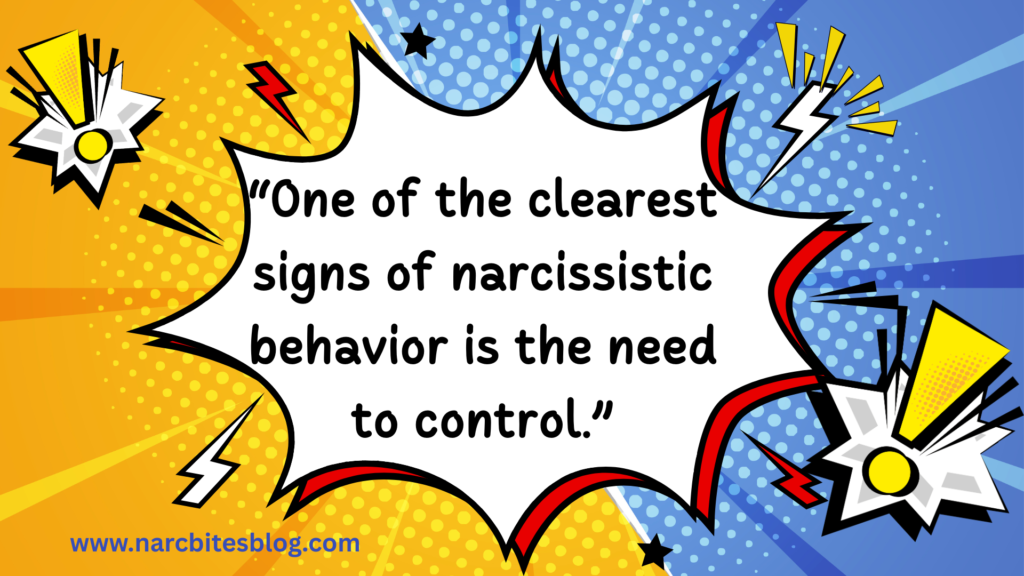If you have ever felt like nothing you do is quite right, chances are you know what narcissistic micromanaging feels like. In these relationships this is not a quirk or a habit. It is a strategy. One of the clearest signs of narcissistic behavior is the need to control. It does not stop with big decisions. It reaches into the smallest details of daily life, until you barely recognize your own choices anymore.
Micromanagement is usually used to describe a bad boss who hovers over every task. But when a narcissist uses it at home, it goes deeper.It can show up in the way you cook dinner, in how you talk to friends, in the words you choose, even in the way you breathe when they are around. The purpose is not efficiency but to keep you dependent and unsure of yourself.
What narcissistic micromanaging looks like
At first, micromanagement can pass as involvement. Someone asks questions, gives advice, or corrects small things. On its own, that is not harmful. But with a narcissist, it is constant and suffocating.
- They check what you are doing, even if you did not ask.
- They cut in when you make decisions.
- They comment on details that are none of their business.
- They treat your efforts as mistakes waiting to happen.
Over time this creates a background hum of tension. You find yourself hesitating before acting, because you know a correction is coming. You begin to think twice before speaking. Initiative fades. Instead of living freely, you live in anticipation of someone else’s judgment.
Why narcissistic micromanaging often feels like care at first
Narcissists are skilled at disguising control as care. They will say things like
- “I’m only helping” or
- “I just want the best for you.”
To an outsider it can sound thoughtful. Inside the relationship it feels like nothing is ever good enough.
The reasons behind it are not kindness. They are driven by the need to keep control at all times. They hold on to a belief that only they can get things right. They enjoy the feeling of being the one others depend on. And they know that constant correction leaves you anxious, which makes you easier to direct.
That is why so many people doubt themselves instead of seeing the abuse clearly. If someone tells you they are helping while they are tearing down your confidence, it is confusing. You start to wonder if you are overreacting. That doubt is part of the trap.
The psychological impact of narcissistic micromanaging
Living with a micromanaging narcissist has effects that go far beyond irritation. People often describe the same emotional pattern. They feel like they are always failing, no matter how hard they try. They stop making independent choices because they expect interference anyway. Their self-confidence drops until they no longer trust their own judgment.
This is how learned helplessness forms. If you are repeatedly shown that your actions will be corrected or dismissed, you eventually stop believing in your ability to act at all. It is not that you cannot think for yourself. It is that you have been conditioned to believe your thoughts are not valid.
Over time the relationship stops feeling like a partnership. It turns into a hierarchy. The narcissist sets themselves up as the authority and you become the subordinate. What should have been equality becomes command and compliance.

When they take over your words
Micromanagement does not stop with your actions. Many narcissists extend it to your communication. They want to control how you phrase things, what tone you use, and even what you are allowed to feel while speaking.
It can sound like constant interruptions. It can look like twisting your words or insisting they know what you really meant. They may accuse you of being too emotional or too cold, depending on what benefits them in that moment. They may use your words later as ammunition.
The point is not conversation. The point is control. Techniques like gaslighting, blame shifting, or silencing are part of this pattern. They make you question your reality until you lose faith in your own perception.
The impact is subtle but powerful. You may find yourself rehearsing conversations before they happen. You scan for safe ways to speak. You hold back more often. Eventually your voice shrinks. What remains is a version of you that feels edited and muted.
How identity gets eroded
Healthy relationships leave space for difference. You can decide, you can make mistakes, you can do things your own way without being punished for it.
In a relationship with a narcissistic micromanager there is no such space. Every choice has to pass through them. Your individuality becomes secondary to their need for control.
This is why micromanagement is not just an annoying habit. It is emotional abuse. It strips away autonomy and confidence until you are no longer treated as a full person. Instead, you become an extension of their will.
Why narcissistic micromanaging is hard to recognize
Micromanagement is often confused with care, which makes it hard to recognize. People around you may even say you are lucky to have someone so attentive. Cultural messages play into this as well. We are told that jealousy is a sign of passion, that supervision means responsibility, that possessiveness shows love. These beliefs blur the line between care and control.
By the time you realize what is really happening, your confidence may already be eroded. You may believe the narcissist’s story that you are clumsy or incapable. This is one of the most damaging effects: you start to believe the false narrative they created.
The workplace comparison
If you have ever worked under a micromanaging boss, you know the impact. Stress builds. Creativity dies. Employees lose motivation. The same thing happens in personal life, but with even more weight. At work you can often leave. At home, emotional ties and family bonds make leaving far harder. That is why many people remain in these dynamics longer than they should.
What lingers afterwards
Self-esteem can stay low for years…
The effects of narcissistic micromanagement do not vanish when the relationship ends. Survivors often struggle with decision making. They may feel frozen when faced with choices, fearing they will get it wrong. They may remain hyper-alert, scanning for signs of criticism even when none are there. Self-esteem can stay low for years because the inner voice of correction does not disappear overnight.
Many describe carrying these echoes into new jobs and new relationships. The habit of doubting themselves follows them. It takes time and support to rebuild the trust in their own judgment.
Reclaiming your ground
Recovery begins with recognition. Naming narcissistic micromanaging for what it is can feel like lifting a veil. Once you see the pattern, you cannot unsee it. The excuses no longer hold. “I’m only helping” no longer sounds true.
From there the work is slow but real. Small independent choices matter. Choosing what to eat, what to wear, or how to spend your time without checking for approval becomes a step toward reclaiming your voice. Surrounding yourself with people who respect your autonomy helps rebuild confidence.
Therapy or coaching can make a difference as well. Untangling the habits created by long exposure to control is not always something you can do alone. With support you can relearn the quiet certainty that you are capable of acting on your own.
The path to healing after the trauma of a narcissistic relationship begins when you rebuild yourself. You do not focus on the past or on them, but on the future and on yourself. I can guide you, but the first step has to be yours.
You can take it here:
You understand what happened. Now what?
Where understanding ends, action begins…
A workbook to help you do the inner work that thinking alone can’t finish.
More than 220 practical exercises across 110+ pages.
More Info

